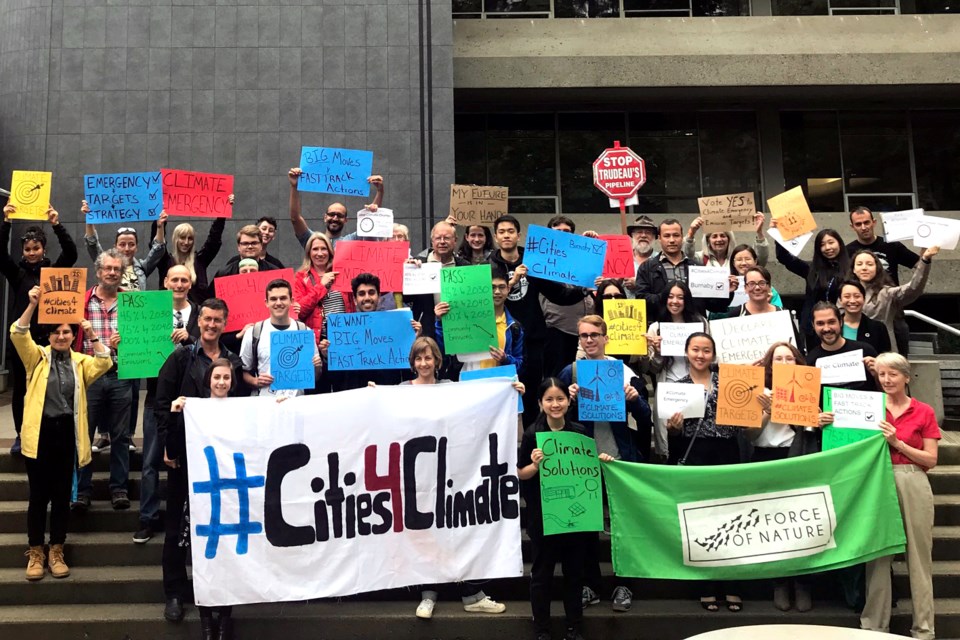Nearly two months after it declared a climate emergency, the City of Burnaby is looking at ways it can reduce its carbon footprint – including adding solar panels to its buildings.
City council received a report from the environment and social planning committee this week asking them to direct staff to study the feasibility of adding solar panels to city-owned buildings.
According to the report from the committee, adding solar panels to the city’s buildings would help accomplish a few of its goals, including building a connected, healthy and dynamic community and building a thriving municipality.
The plan is to have staff look specifically at making Burnaby City Hall the first city building to be converted to solar power, and to devise a plan to convert the remainder of the buildings from there, said Coun. Colleen Jordan, chair of the environment and social planning committee.
The matter passed relatively easily, although Coun. Pietro Calendino said he doesn’t “have a problem with the recommendation to go solar,” but said he recently came from a solid waste conference in New Westminster.
“One of the questions is what to do with all this solid waste that we’re going to be faced with in the future? Obviously solar panels do not have an indefinite lifespan,” Calendino said.
While he acknowledged there may be technology developed down the line to better handle that kind of waste, Calendino questioned the capacity to deal with that at the present.
Mayor Mike Hurley countered that that would likely be part of the feasibility study.
The city declared a climate emergency, to applause in the council chambers, in early September, committing to carbon neutrality by 2050. That includes directing staff to look at reducing greenhouse-gas emissions below 2007 levels by 2030 and by 75 per cent by 2040.
The numbers are in line with recommendations from the 2018 Intergovernmental Panel on Climate Change report, which invigorated the environmental movement with a dire warning should warming increase over 1.5 C over preindustrial levels.



